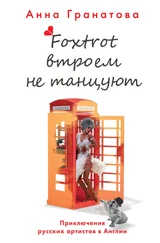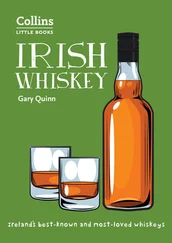So what’s the deal with your being two days late?” Dylan asked her as he took her bag out of the car. It was midnight. Dylan had been waiting for her on the street, smoking by the garage, when she pulled up.
He embraced her before he said anything. The sweet stink of his cigarette was overpowering, but she was so glad to see him that she found it delicious.
“And whose car is this?” he asked, checking out the vehicle.
“It’s kind of a rental, I guess.”
He gave her a bullshit look. “From where? Planned Parenthood?” Leila saw what he meant: the faded and peeling pro-choice stickers on its rear bumper.
“Yeah, well, I guess I kind of borrowed it from some friends, then,” said Leila.
“Intriguing,” said Dylan.
“Oh, yeah, brother. Most intriguing. But maybe pointless, after all. So I don’t want to get into it tonight.” She saw that Dylan was even looking a tiny bit old, like the ledge of his shoulders was less straight than it had been a year ago. She saw it then for the first time: he looked like their father.
“Is Dad up?”
“Probably not. He’s pretty checked-out at night, actually. I don’t see why he has to be on that much stuff. But Roxana says it’s okay.”
“Is she pretending she’s a doctor?”
Dylan smiled. “No, the actual doctors put a stop to that pretty quickly. But she’s liaising with that half of the situation.”
“And you’re legal?”
Dylan gave the faintest nod. “That’s the idea.”
“But then what do I get to do?”
“Just do some of your magic.”
“Right. My magic.”
“Well, you can help me with the legal stuff. Or you can take it over, actually. It’s not going great on that front. The FBI is just canvassing everybody who ever came through that school to find any dirt on Dad. And, you know, even Dad has enemies. Someone’s gonna make something up soon. Yesterday, one of the lawyers said maybe we should see what kind of deal they’re offering. I didn’t even tell that to Dad. If this sticks to him…” Dylan was at a loss for words. “We can’t let that happen.” He dropped her bag by the front door and hugged her again, but the other kind of hug, the kind where the hugger lets go of his own strength for an instant and sort of hangs off the huggee.
“How about Mom?” said Leila, partly to bring the hug to a conclusion.
“Yeah, that’s what you can do, actually.”
“Is she totally wigging out?”
“Well. No. I mean, she’s wigging out. But not about the right things. She tore into a checker at Safeway the other day, for double-bagging or not double-bagging or something. But she’s pretty much ignoring the actual situation. She hardly noticed when I got back from the airport two days ago and you weren’t with me. I told her you were hung up in London, and Roxana told her you had to stop in New York. She never investigated either claim.”
Shit, thought Leila. “Is she up now?”
“She’s not home. She’s out with Peggy.”
“Peggy Pillbottle? Hasn’t that old wagon tripped over a golf tee yet?”
“You know that Peggy quit drinking ten years ago, right?”
“Yeah, I know.” Peggy Pilkerson was one of the few non-Persians in the small crew of friends Leila’s mom had run with since she arrived in America. But Leila was forgetting that Peggy Pilkerson was also Bobby Pilkerson’s mother, and Bobby Pilkerson had been Dylan’s best friend growing up and then had died, presumably accidentally, by autoerotic asphyxiation at seventeen, which tragedy had a few extra layers of pain on it and had been six months’ worth of local gossip and had led to Peggy’s divorce and then to her spectacular collapse. “Maybe Peggy’s a great one to handle Mom, under the circumstances,” said Leila.
“Yeah, maybe,” said Dylan, in a way that meant “probably not.” “I think they’re playing blackjack right now.”
“What’s blackjack?” said Leila.
“The card game,” said Dylan. “Like, they’re at a casino. That’s where they end up when they go out. Last week they drove to Vegas.”
“Mom can’t play cards.” This was a known fact. She was always calling jacks jokers and folding when it turned out she had a killer hand.
“Well, then let’s assume she’s losing,” said Dylan.
“Or maybe she’s been hustling us all these years.”
“That would be a very long con, sister.”
Leila slept in the little room off the kitchen, beneath the stairs. It had once been Dylan’s room. But now their mom used it to stack cases of President’s Choice diet cola and to hide all the real-life things that housewives need to hide in order to make their houses look spotless. But there was still a narrow bed in there. Dressing in the tiny space, Leila was put in mind of Cinderella or Anne Frank. But then she remembered that one of those was a fairy tale and the other a girl murdered by Nazis.
In the morning, sitting on the toilet, she looked between her knees and was comforted when her eye landed on the little hexagonal floor tile that had cracked to look like an old woman talking to a butterfly. Dylan had once said to her, No, not an old woman talking to a butterfly. That’s a fish about to eat a piece of fish food.
But, lifting her gaze from the cracked tile, Leila noticed that the bathroom wasn’t as clean as it should have been. This was strange. Mariam Majnoun considered herself the personal enemy of any scuzz, dust, film, fliff, grime, or splodge that tried to breach her walls.
After a long shower, she dressed and then knocked lightly at the door of the den. Then a little less lightly.
“Come,” said her father.
Leila had prepared herself — she thought — for the sight of her dad as a cardiac patient. But no, she hadn’t, it turned out. When she was home a year ago, he was just a guy nearing retirement — a bit stooped, and squinting at labels — but you could be that way for twenty good years. Whereas the Cyrus Majnoun in the hospital bed in the den looked to be near the lip of the canyon. The skin around his eyes. Leila must have displayed her shock, because her dad winced before he smiled. But his smile was a true thing and he said her name in a still-strong voice and as she ran toward him, he zizzed up his adjustable bed with dispatch.
She hugged him as best as you could hug someone who was sitting up in bed.
“So was it London or New York you were stuck in?” he asked her.
“New York,” she decided. “I had to debrief with Helping Hand.”
“Ah, yes, the employer with the dumb name. Are they going to straighten out your problems with the unreasonable Burmese?”
“It’s unclear.”
“Well, anyway, I get to see you, which brings me joy.”
There was a ten-second stretch of not saying anything, and then Leila thought she would cry, so instead she said, “This bed fits in the den just fine.”
“Yes, it does,” said her father, nodding and surveying the room, as if Leila had flown home from Burma to evaluate the feasibility of putting a hospital bed in the den. Another ten seconds or two weeks ticked by and then her father said, “Leila, I have not yet said to you that this thing they say I did…these charges. I want you to know—”
“Dad, I know.” Leila cut him off. “I know that. And not just because it’s you, but also…” She stopped. What would be gained by telling her dad about Dear Diary? Would it help in any way to say that she knew that he had been set up? Not by the maladjusted math teacher he’d fired two years ago (as Dylan reported he suspected) but by a cloaked and tentacular super-mafia? And that this had been done to him because of her nosiness and her whole pursuit-of-truth thing? And that she knew this because the nameless agency’s antagonist network had semi-abducted and mind-melded her?
Читать дальше












